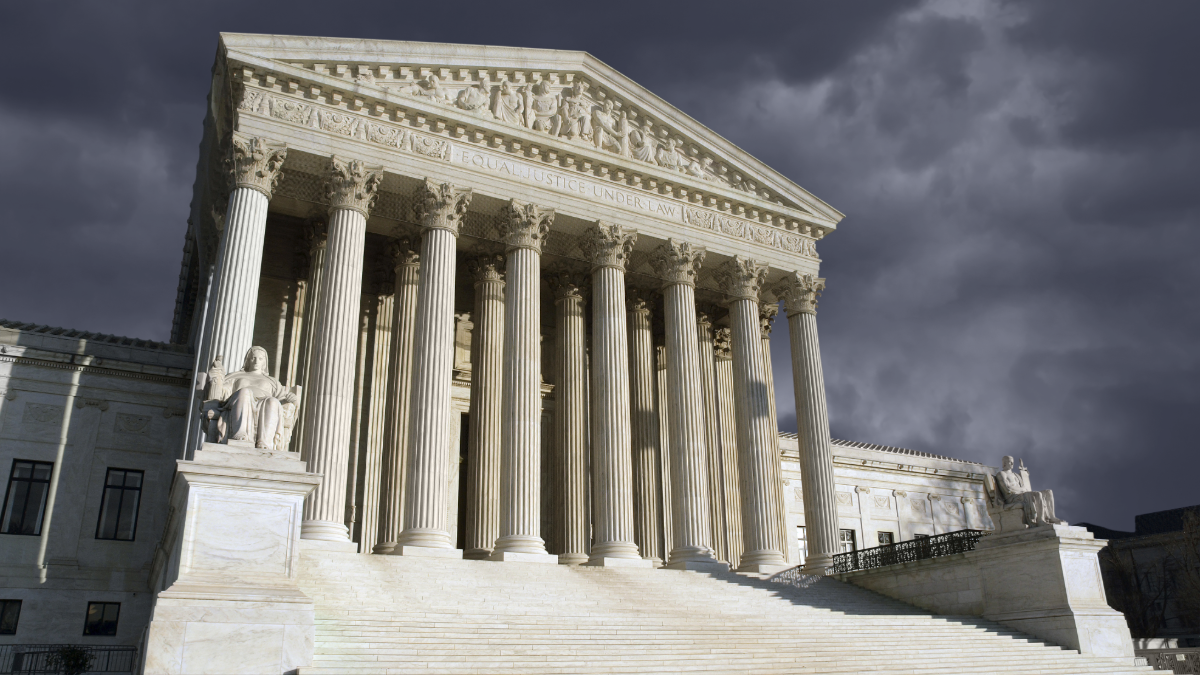Overturning the Chevron Doctrine is Not the Disaster Some Fear
Mark MacCarthy / Jul 11, 2024
Shutterstock
Chief Justice John Roberts’ opinion in Loper Bright Enterprises v. Raimondo overturning the Chevron deference appears to be a defeat of the administrative state by an out of control “judicial oligarchy” which, as law professor Barry Friedman has described, is how political reformers used to describe reactionary courts during the progressive era. But an interpretation of the case by conservative Harvard law professor Adrian Vermeule shows how Congressional leaders focused on tech policy reform can accommodate the changed legal environment.
The Loper Bright opinion emphasizes that judges must “exercise independent judgment in determining the meaning of statutory provisions” and that an agency’s interpretation of a statute “cannot bind a court.” The courts, not the agency, determine what the law is. So, the court deference automatically given to agency interpretation of an ambiguous statute is gone.
But Vermeule draws attention to a striking passage in the opinion (pp. 17-18) which acknowledges that Congress often expressly delegates authority to agencies to resolve issues that are left undecided in the statute itself. This delegation could involve “the authority to give meaning to a particular term” or “to prescribe rules to ‘fill up the details’ of a statutory scheme” or to regulate with limits imposed by “a term or phrase that leaves agencies with flexibility, such as ‘appropriate’ or ‘reasonable’.”
According to this passage, when Congress is crystal clear about this delegation in the statute, the courts will still review whether an agency action is pursuant to constitutional delegation, whether it falls within the boundaries of delegated authority set by statute and whether it is reasonable. But this passage seems to promise that the Court will not substitute its independent judgment on the agency’s action as long as it is reasonable and within the boundaries of constitutionally delegated authority.
This is not good news for agencies operating under statutes with significant statutory ambiguity as to a grant of authority; their expert interpretations of the extent of their own powers will be second-guessed by generalist judges. But the message for Congressional tech policy reformers could not be clearer. If Congress wants an agency to perform a function, it must specify that with absolute clarity. For instance, in my book Regulating Digital Industries, I argue that Congress should assign authority to a digital agency to regulate companies in specific industries, including electronic commerce, search, and social media, with respect to competition, privacy, and content moderation.
What about a new digital line of business not explicitly made subject to agency jurisdiction in the statute? If Congress wants the agency to be able to expand its own jurisdiction to this new line of business without returning to Congress for explicit authority over that industry, it has to expressly authorize the agency to do this. It might also require the agency to conduct a rulemaking and to take into account certain factors, such as the level of competition in the line of business and the centrality of the industry to the nation’s economic and social life.
Under the new Loper Bright delegation regime, courts could review an agency judgment pursuant to this delegated grant of authority to ascertain whether the action really did fall within the delegation and whether it was reasonable. But the court could not say that the agency exceeded its authority simply because it extended its own jurisdiction to a new digital line of business not mentioned in the statute.
The same message of unmistakable clarity in delegating authority applies to pending legislative efforts to regulate privacy, artificial intelligence, kids online safety, social media content moderation, and anti-competitive economic discrimination.
Of course, there is still the question of what authority Congress can constitutionally delegate. Chevron is only one of a tangle of intersecting legal doctrines that concern constraints on the authority of regulatory agencies. The major questions doctrine, which the Court explicitly embraced in its 2021 West Virginia v. EPA decision, holds that Congress may not delegate authority to an agency to take actions of “deep economic and political significance” unless it does so clearly.
Related is the nondelegation doctrine, which traditionally meant that Congress could not delegate authority to an agency, even if it did so expressly, unless the delegation contained an “intelligible principle” to guide the exercise of this authority. A more recent and restrictive version of non-delegation, derived from Justice Neil Gorsuch’s dissent in Gundy v. United States, holds that delegations are constitutionally permissible only to “fill up the details” of a statutory scheme, or to make the application of a rule specified in statute dependent upon agency fact-finding, or in areas such as foreign policy where Congress and the executive branch share jurisdiction. The court has not yet adopted this newer version of nondelegation, because only the minority has expressed support for it.
The passage in the Loper Bright decision cited above provides a ray of hope that a majority of the court would constitutionally permit delegation for a broad array of regulatory powers, including defining key legislative terms or phrases and promulgating rules under flexible guidelines of reasonableness and appropriateness.
But there is real danger to the regulatory model that has guided this country for well over a century. Combining the major questions doctrine with the restrictive Gorsuch version of non-delegation would be a much more significant constraint on regulatory discretion than the new Loper Bright delegation regime. It would say, in effect, that Congress cannot delegate a major question to a regulatory agency. In the example above, Congress would not be able to delegate the decision to regulate a digital line of business not mentioned in the statute to an agency, since such an extension of regulatory authority would be without question a major action. For tech reformers, and indeed for any regulatory regime, such a constraint would indeed be an almost insurmountable roadblock.
The good news, I think, is that we are not there yet. The way the court overturned Chevron still leaves plenty of policy space for agencies to craft measures that protect the public interest, provided only that, going forward, legislatures craft delegations of authority clearly.
Authors
